Self Journaling

What are some effective methods for conducting a self-assessment ?
This text discusses the importance of self-assessment for personal and professional growth, emphasizing that it helps individuals identify strengths, weaknesses, and areas for improvement. It presents three effective methods for conducting a self-assessment: 1. **SWOT Analysis**: This involves identifying one's strengths, weaknesses, opportunities, and threats. The process includes making a list of skills and qualities, identifying areas of struggle or lack of confidence, looking for growth opportunities, and recognizing external factors that may hinder progress. 2. **Reflective Journaling**: This method involves writing down thoughts, feelings, and experiences on a regular basis. It starts with choosing a journaling method, setting a schedule, and reflecting on experiences by asking questions about learning, handling challenges, and areas for improvement. 3. **Goal Setting**: This is an essential part of self-assessment that helps in identifying achievement targets and creating a plan to reach them. The steps include defining specific, measurable, achievable, relevant, and time-bound (SMART) goals, creating an action plan, and regularly tracking progress towards these goals.

How can we promote self-care and self-love for women's mental health ?
Promoting self-care and self-love for women's mental health requires a comprehensive approach that includes creating awareness, providing resources, and establishing supportive environments. This involves understanding the importance of mental health, dispelling misconceptions, normalizing conversations, providing accessible information, offering therapeutic support, building community networks, implementing workplace initiatives, advocating for policies, encouraging mindfulness and meditation, promoting healthy lifestyle habits, and fostering self-reflection and growth. By adopting these strategies, we can empower women to take charge of their mental health and lead fulfilling lives.

What role does self-awareness play in self-assessment techniques ?
Self-awareness is a crucial component of self-assessment techniques, helping individuals identify strengths and weaknesses, set realistic goals, enhance emotional intelligence, improve self-confidence, and foster personal growth.

How can women build their self-confidence in the workplace ?
The text provides a summary of how women can build self-confidence in the workplace through embracing achievements, setting realistic goals, developing new skills, practicing self-care, surrounding themselves with positive influences, speaking up and owning ideas, seeking mentorship, challenging themselves, celebrating uniqueness, and learning from failure.

In what ways do sports promote self-discipline and self-control ?
Sports play a crucial role in promoting self-discipline and self-control by teaching goal setting, time management, perseverance, impulse control, delayed gratification, and stress management. These skills are essential for success in all areas of life, including personal and professional relationships, academics, and careers. By participating in sports, individuals develop valuable character traits that can lead to long-term success and well-being.

What are the best ways to document our family travel experiences ?
This text provides a comprehensive guide on documenting family travel experiences. It suggests various methods such as photography, videography, journaling, social media, blogs/vlogs, artistic expressions, and maps/graphics to capture and preserve these memories effectively. The text emphasizes the importance of quality gear for photography, backup storage for photos, video editing for better storytelling, detailed journaling for deeper reflection, private social media groups for family-only sharing, interactive content for blog engagement, and creative handicrafts for cultural representation. The ultimate goal is to ensure that these cherished moments are well-documented and can be passed down through generations.
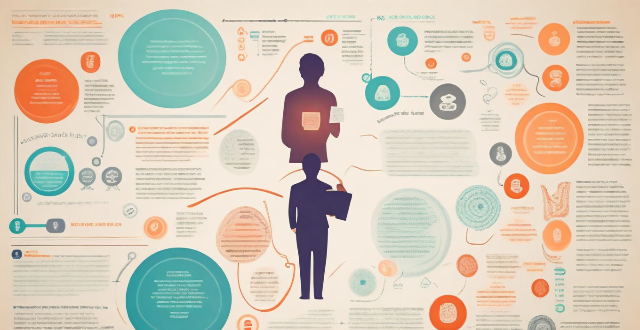
What are the key self-assessment techniques for personal growth ?
Self-assessment techniques help identify strengths, weaknesses, and areas for improvement. Key methods include reflecting on past experiences, setting goals and tracking progress, seeking feedback from others, keeping a journal or diary, and practicing mindfulness and self-awareness. These techniques provide different perspectives and help individuals understand their personal growth over time.

What is the relationship between self-efficacy and motivation in learning ?
This article explores the relationship between self-efficacy and motivation in learning. It explains how self-efficacy affects motivation, including choice of activities, level of effort and persistence, and emotional response to setbacks. The article also provides suggestions for enhancing self-efficacy to increase motivation, such as providing opportunities for mastery experiences, modeling successful performance, offering positive feedback and encouragement, and helping students set realistic goals.
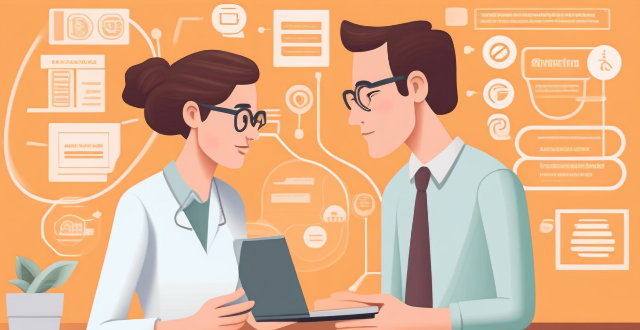
What are the best ways to manage anxiety and depression in women ?
The text discusses several strategies for managing anxiety and depression in women, emphasizing the importance of seeking professional help, practicing self-care, building a support network, making lifestyle changes, and considering medication. It highlights different types of therapy and medical professionals to consult, as well as various self-care practices like exercise, mindfulness meditation, and journaling. The article also touches on the significance of social connections and time management in managing mental health. Finally, it provides information on antidepressants and stress reduction techniques, advising readers to work closely with healthcare professionals to find the best approach for their needs.

How does exercise influence self-esteem ?
Exercise has a profound impact on self-esteem, positively influencing confidence, body image, and mental health. Physical benefits include weight management through fat reduction and muscle tone, as well as improved cardiovascular health and immune system function. Mental benefits include stress reduction through endorphin release and mindfulness, and enhanced cognitive function with improved memory and problem-solving abilities. Social benefits come from community building through group activities and support systems, as well as personal achievement through goal setting and feedback. Overall, regular physical activity can significantly enhance self-esteem by promoting physical, mental, and social well-being.
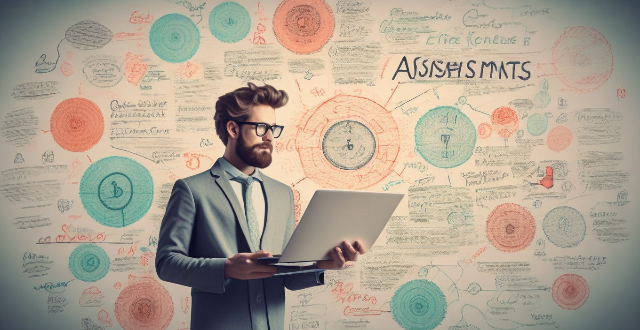
How do I use self-assessment techniques to identify my strengths and weaknesses ?
Self-assessment techniques help identify strengths and weaknesses for personal and professional growth. These include reflecting on past experiences, seeking feedback, taking online assessments, journaling, analyzing achievements and challenges, setting goals, and practicing mindfulness.
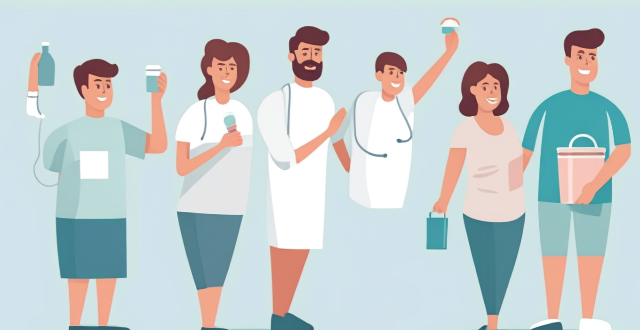
What strategies can women use to prioritize their mental health while balancing work and family responsibilities ?
This text discusses the importance of prioritizing mental health for women, especially while they are juggling work and family responsibilities. It provides several strategies to help achieve a healthy work-life balance, including developing a self-care routine, setting boundaries, building support systems, managing time effectively, and engaging in self-reflection and growth activities. The text emphasizes that taking care of oneself is not selfish but essential for maintaining overall well-being and happiness.

Are there any particular self-defense techniques recommended for female travelers ?
Self-defense techniques are essential for female travelers to stay safe while exploring new places. Learning basic self-defense moves, taking a self-defense class, and practicing situational awareness can help reduce the risk of becoming a victim of crime during travels. It is crucial to trust your instincts and seek help if needed.

How can women develop their emotional intelligence in the workplace ?
Emotional intelligence (EQ) is a crucial skill for success in the workplace, especially for women who often face unique challenges and biases. Developing EQ can help women navigate complex social dynamics, build strong relationships, and lead effectively. Here's how they can enhance their emotional intelligence: Self-awareness involves understanding your own emotions and practicing self-reflection. Self-regulation means managing your emotions and staying calm under pressure. Motivation includes setting goals and finding sources of inspiration. Empathy involves listening actively and showing compassion. Social skills entail improving communication and building relationships. Continuous learning means seeking feedback and engaging in training. By focusing on these key areas, women can enhance their ability to navigate the workplace effectively. Remember that developing EQ is an ongoing process that requires practice, patience, and a commitment to personal growth.

How often should I perform a self-assessment to track my progress ?
Self-assessment is essential for monitoring progress in various aspects of life. The frequency of self-assessment depends on individual goals and the specific area of focus. For short-term goals, weekly or bi-weekly assessments are beneficial, while medium-term goals require monthly evaluations. Long-term objectives need less frequent but more comprehensive quarterly or semi-annual reviews. Key elements of effective self-assessment include clarity on goals, measurable criteria, reflection, adjustment, and accountability.

How does self-employment affect my personal income tax calculation ?
Self-employment affects personal income tax calculation by requiring net income reporting, quarterly estimated tax payments, utilizing deductions and credits, filing specialized forms, and paying self-employment tax. Staying organized and informed about tax laws is crucial for effective tax management.

How does sports participation influence self-esteem in children ?
Sports participation has a positive impact on children's self-esteem by increasing physical fitness, developing skills and mastery, promoting social interaction and teamwork, and encouraging goal setting and achievement.

Is there a connection between physical fitness and self-esteem ?
The article discusses the relationship between physical fitness and self-esteem, stating that engaging in regular exercise and maintaining a fit body can improve one's body image, confidence, mental health, and social interaction. In contrast, poor physical fitness can lower self-esteem by negatively impacting body image, confidence, stress levels, and leading to isolation. The author concludes that maintaining good physical fitness is essential for overall well-being and self-esteem.
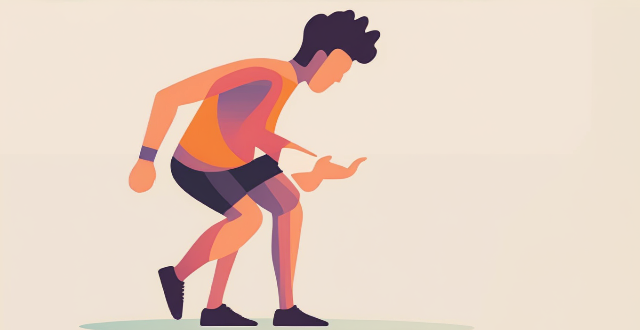
Is there a link between exercise and improved self-esteem ?
This topic summary explores the relationship between exercise and self-esteem, explaining how regular physical activity can boost mental health and improve one's perception of their own worth. It discusses the types of exercise, their benefits on mental health, and evidence from research supporting the positive correlation between exercise and self-esteem. The conclusion emphasizes the importance of incorporating exercise into one's routine to enhance self-esteem.

What are the benefits of guided vs self-guided nature and wildlife tours ?
The article discusses the advantages and disadvantages of guided versus self-guided nature and wildlife tours. Guided tours offer professional guidance, organized experiences, safety and support, and local connections but can be more expensive and less flexible in terms of itinerary and schedule. Self-guided tours, on the other hand, allow for customized itineraries, independence, cost efficiency, and deeper engagement with the environment, but require more planning and may lack the safety net provided by a guide or group. The choice between these two types of tours depends on personal preferences, skill level, goals, and budget.

In what ways do sports enhance self-esteem and confidence ?
Participating in sports can significantly boost an individual's self-esteem and confidence. Here are some ways how: 1. Achieving Goals 2. Overcoming Challenges 3. Social Interaction 4. Physical Health 5. Learning New Skills 6. Receiving Feedback 7. Leadership Opportunities 8. Competition Experience 9. Wearing Uniforms 10. Public Performance

How does sports participation affect one's self-esteem and confidence ?
Sports participation positively affects self-esteem and confidence by providing opportunities for skill development, goal achievement, positive feedback, facing challenges, overcoming obstacles, and developing a sense of mastery.
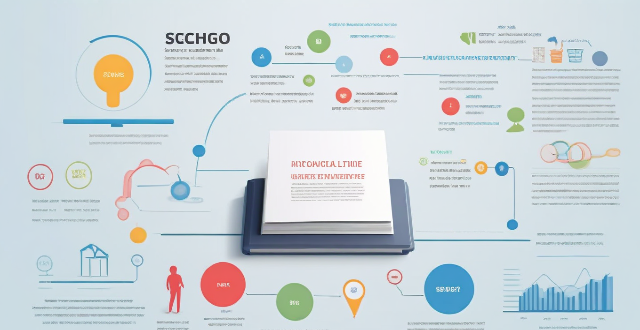
What role does self-discipline play in following a study plan ?
Self-discipline is crucial in following a study plan effectively. It involves setting goals, prioritizing tasks, maintaining focus on objectives, and avoiding distractions. By breaking down long-term goals into smaller, manageable tasks and allocating time wisely, self-disciplined individuals can maximize productivity and achieve academic success efficiently. Consistency, overcoming procrastination, and staying motivated are also key factors in sticking to a study plan. Developing strong self-discipline skills can help students reach their full potential.

Can playing sports improve one's self-confidence and personal growth ?
Playing sports can contribute to self-confidence and personal growth by developing skills, overcoming challenges, fostering teamwork and support, promoting discipline and responsibility, encouraging goal setting and achievement, and enhancing social interaction and empathy. Incorporating sports into one's lifestyle can be highly beneficial for overall well-being and personal development.
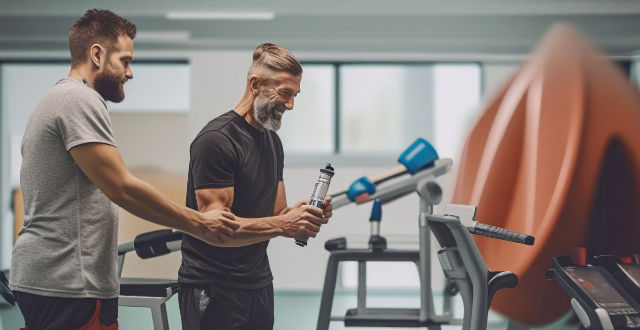
What role do sports play in improving self-esteem and confidence ?
Sports have been recognized as a powerful tool for enhancing self-esteem and confidence. This is because they provide opportunities for individuals to challenge themselves, achieve goals, and develop a sense of accomplishment. In this article, we will explore the various ways in which sports can contribute to these positive outcomes. Firstly, engaging in sports can lead to improved physical health, which in turn can boost self-esteem and confidence. Secondly, sports can also have a positive impact on mental health by releasing endorphins that reduce symptoms of depression and anxiety. Thirdly, participating in group activities can help individuals develop communication skills and build relationships with others who share similar interests. Fourthly, achieving goals in sports can lead to a sense of accomplishment and pride that translates into other areas of life. Finally, overcoming challenges in sports can teach individuals valuable lessons about resilience and determination. Overall, sports play a significant role in improving self-esteem and confidence by providing opportunities for physical health benefits, mental health improvements, social interaction, goal setting and achievement, and overcoming challenges.

How do individual versus team sports impact self-esteem in young people ?
The text discusses the impact of individual versus team sports on self-esteem in young people. It outlines key points such as the focus on personal growth and discipline in individual sports, and the social support and collaboration learned in team sports. The benefits of each type of sport are also highlighted, including increased autonomy and clear feedback from individual sports, and social skills development and resilience from team sports. A comparative analysis is provided, discussing the pros and cons of each type of sport in relation to self-esteem. The conclusion suggests that both types of sports can positively impact self-esteem, but finding the right fit for each individual is crucial.

Can sports be a tool for personal growth and self-discovery ?
Sports offer numerous opportunities for personal growth and self-discovery, including building resilience and determination, developing teamwork and communication skills, enhancing self-discipline, promoting emotional health, discovering passion and purpose, and cultivating mindfulness and focus.

Can you suggest any tools or resources for conducting a self-assessment ?
Self-assessment is crucial for personal growth and professional development. Online tools like StrengthsFinder, MBTI, and DISC Assessment can help identify strengths, weaknesses, and areas for improvement. Books such as "StrengthsFinder 2.0" and "How to Win Friends & Influence People," along with articles from Harvard Business Review, offer valuable insights. Workshops like StrengthsExplorer and courses on personality types at Personality Hacker Academy or Skillshare can further enhance self-understanding.

How can self-assessment help me set realistic goals for myself ?
The article discusses the importance of self-assessment in goal setting. By identifying one's strengths and weaknesses, evaluating progress, and setting realistic goals, individuals can increase their chances of success and avoid feeling overwhelmed or discouraged. The article provides tips for each step of the self-assessment process, including breaking larger goals into smaller steps, prioritizing based on importance and urgency, being specific about what is wanted to achieve and why, considering potential obstacles, and developing strategies to overcome them. Ultimately, self-assessment helps individuals gain a better understanding of their capabilities and what steps need to be taken to achieve their goals.
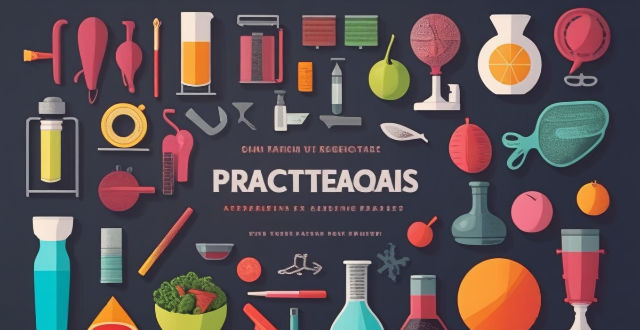
How can mindfulness practices be integrated into sports psychology for improved focus and performance ?
Mindfulness practices can be integrated into sports psychology to improve focus and performance for athletes. Benefits include improved concentration, reduced anxiety and stress, enhanced self-awareness, and better recovery. Techniques such as breathing exercises, meditation, visualization, mindful movement, and journaling can be used by athletes to develop greater awareness of their thoughts, feelings, and surroundings. Incorporating these practices into training programs can help athletes stay calm under pressure, maintain focus during competitions, and improve overall performance.